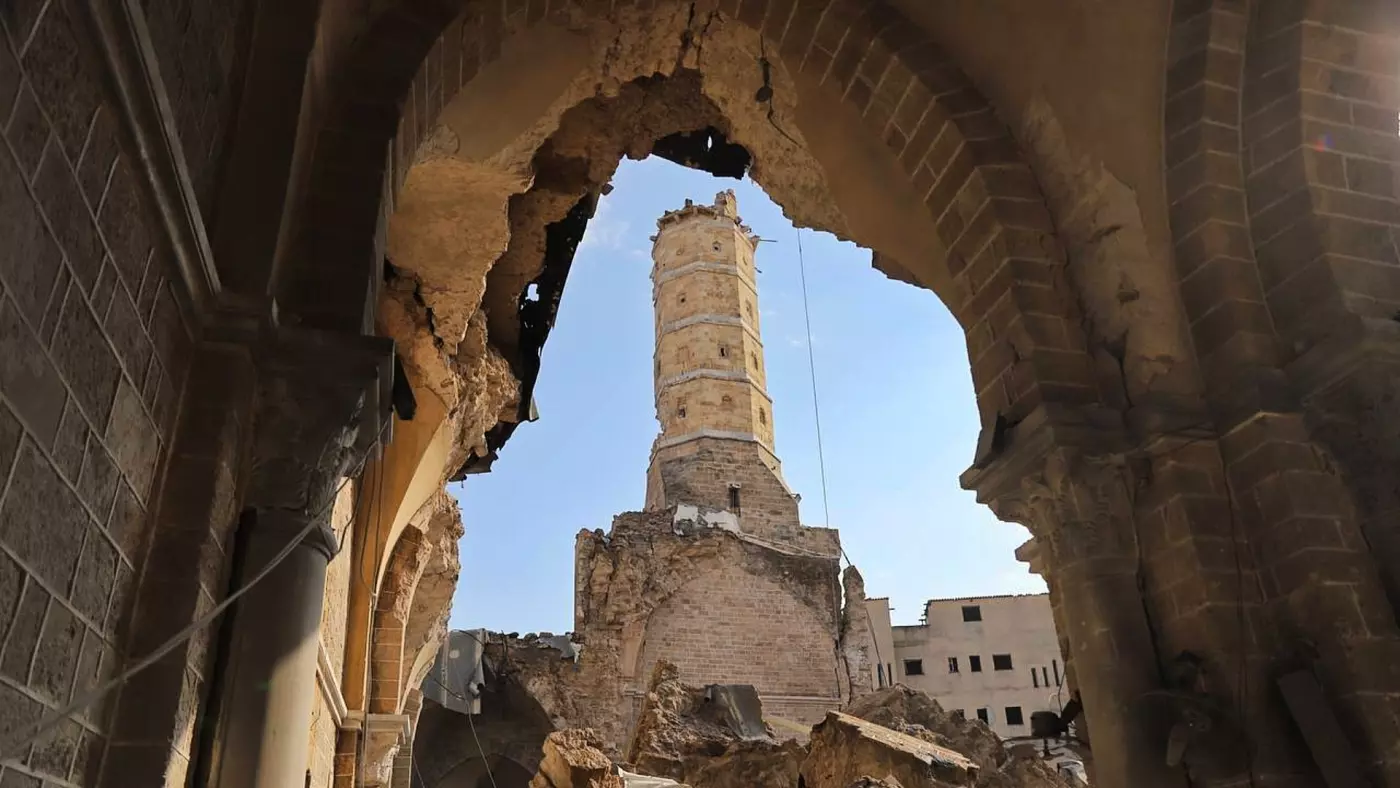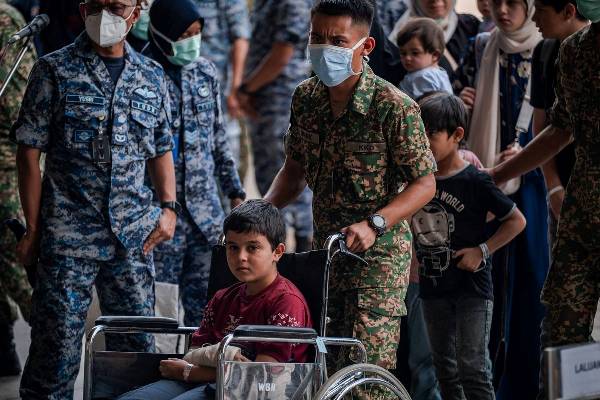Abu Obaida Izz Ad-Din Al-Qassam Brigades, the armed wing of Hamas, during a news conference in Gaza City on September 30, 2009 [MAHMUD HAMS/AFP via Getty Images]
- by Dr Mohammad Makram Balawi
What is happening in the Mediterranean has brought back bad memories in Arab minds. America, with the help of Britain, France and Germany, the historical enemies of Arabs, has formed a Western coalition to back Israel. Huge armies have been brought to the region under the pretext of facing Hamas, including aircraft carriers and nuclear submarines. These colonial powers colonised most of the Arab world less than a century ago, and destroyed Iraq and Afghanistan.
The Arab public, in general, has long lost faith in international and regional organisations, as they have seen them helpless in front of all destructive conflicts in the region. The Organisation of Islamic Cooperation (OIC) and the Arab League have a big share of public anger, which accuses them of bowing down to Western pressure and even becoming a destructive tool in all these conflicts. Based on long negative experience, not much was expected from the recent extraordinary joint Islamic-Arab summit in Riyadh, held to “end to hostilities in Gaza”. Yet, the outcomes of the summit generated more resentment and distrust among the public.
With no concrete steps or plans, Palestinians are practically left alone to be murdered by the Israeli army and the American-led Western coalition. In fact, the various Arab regimes have shown themselves to be more interested in protecting their own interests and relations with Israel and Western countries than in actively helping the plight of their Palestinian brothers in Gaza.
To rub salt into the wound, the Arab public saw a thousand Hamas fighters defeating Israel while, over the last 75 years, huge Arab armies were defeated by Israel. This has created a lot of suspicion in the public’s mind, to the extent that many people openly say that the Arab states actually never fought Israel, and all these wars were a big drama orchestrated by former colonial powers and the United States.
Abu Obaida, the spokesman of Izz Ad-Din Al-Qassam Brigades (IQB), who has become an icon in the eyes of Arabs, indirectly criticised Arab and Muslim countries, saying “we do not expect you to fight our battle, but at least send ambulances and humanitarian aid into Gaza”. A message read by many as a big insult, as this is usually the duty of women in war – to treating the injured and providing for their needs, in Islamic culture and history.
This sentiment of abandonment and betrayal is widely shared by many Palestinians, especially those in Gaza. The Palestinians have lost nearly all faith in the international system and mechanisms of international law providing them any justice or protection from Israel’s military domination. They have seen the United Nations fail to protect Palestinian civilians, time and time again, whether through the weakness of UNRWA or the US using its veto power in the Security Council to block resolutions condemning Israeli actions. They have seen the European Union continue to provide Israel with billions in trade deals, military equipment and technology and diplomatic support, despite ongoing settlement expansion and oppression of Palestinians. The hypocrisy of these policies has deeply disillusioned Palestinians about the international community.
A positive development has been the shift in the Western popular position on the Palestinian issue in some countries. Surveys show that growing numbers of people in Europe and even the US are sympathetic to the Palestinian perspective and critical of Israel’s government policies. It is becoming increasingly clear to many that the Western governments, especially the US, do not represent the views of much of their public on this issue. There is a significant grassroots movement of solidarity with the Palestinians forming in the West, putting pressure on some governments to review their one-sided support for Israel.
The West finds itself trapped between growing internal and external pressure related to the Palestinian issue. Internationally, there is pressure coming from the counter-coalition of countries, including Turkiye, Russia, China, Iran and others which are more supportive of Palestinian rights. There is also pressure coming from the public in Muslim countries, which is becoming increasingly vocal in its support for Palestinians. Domestically, the Western public is becoming more disillusioned with their governments’ unquestioning support for Israel, despite the human cost paid by Palestinians.
If these pressures continue building, there is a chance that the West could push Israel to end the latest war in Gaza quickly through a real ceasefire and opening of borders. This would mean the destruction of Netanyahu’s political career and government, after so many years in power. It could also exacerbate the existing domestic crises within Israel between Jews of European descent and Mizrahi, and religious and secular backgrounds. The long term outcome of the current military confrontation remains unclear, but the Palestinian Resistance is not going away and will continue fighting for national liberation and an end to oppression.
The curse of the eighth decade, which haunts the Israeli mind, has seemingly come true. Regardless of all the killing and destruction Israel inflicts upon them, Palestinians rise up against their occupiers once more. They show no signs of giving up their struggle until the inalienable rights of self-determination and freedom in an independent Palestinian State are finally achieved, after over 70 years of dispossession and statelessness.
Yet, this curse will not be confined to the Israelis. The widespread distrust in Arab leaders might have dire consequences on the region and, by extension, the rest of the world. Historically, similar situations provide the perfect environment for military coups, public unrest or even assassination of heads of states. The longer this situation in Gaza continues, the higher the possibility we might witness such dramatic events.
Post Disclaimer | Support Us
Support Us
The sailanmuslim.com web site entirely supported by individual donors and well wishers. If you regularly visit this site and wish to show your appreciation, or if you wish to see further development of sailanmuslim.com, please donate us
IMPORTANT : All content hosted on sailanmuslim.com is solely for non-commercial purposes and with the permission of original copyright holders. Any other use of the hosted content, such as for financial gain, requires express approval from the copyright owners.
 Sri lanka Muslims Web Portal Sri Lanka Muslims News Center
Sri lanka Muslims Web Portal Sri Lanka Muslims News Center
 Donate
Donate


